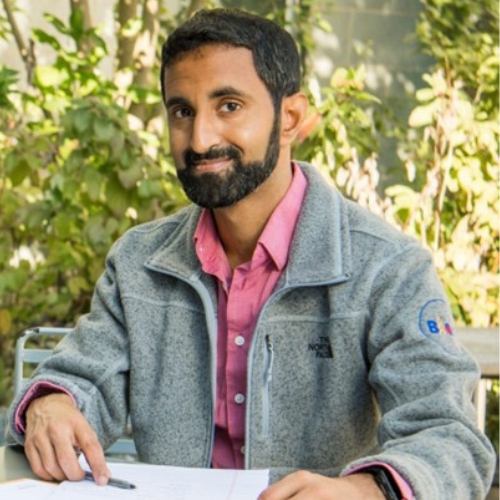
Aditya Kunjapur
Assistant Professor in Chemical & Biomolecular Engineering
the University of Delaware
How expanded building block chemistry can enable new frontiers for synthetic biology
March 27
4:00–5:00 p.m.
Physics/Astronomy Auditorium A118
Abstract
Diverse challenges in human and environmental health can be addressed by harnessing the power of biocatalysis to create unnatural building block chemicals - efficiently, selectively, and potentially in distributed contexts by autonomous cells. Our lab is expanding the biological repertoire of building blocks by engineering metabolism, proteins, and genomes.
In this talk, I will present glimpses of our work in three related research directions. First, we have designed biochemical routes to add amine functionality to carboxylic acids and aldehydes derived from plastic or biomass waste. Our mono- and diamine monomers should allow for polymer upcycling. Second, we are advancing the biosynthesis of non-standard amino acids (nsAAs) by live cells, with an emphasis on introducing heteroatom functionality onto aromatic amino acid sidechains. One example is the biosynthesis of an immunogenic amino acid that contains a nitroaromatic sidechain. We demonstrate the design of live bacterial cells that biosynthesize para-nitro-L-phenylalanine and that insert it within specific sites of target proteins.
This technology may serve as a foundation for live bacterial vaccines that produce recombinant antigens for better recognition by the immune system. To enable a more generalizable approach to nsAA biosynthesis for diverse applications, we also report new and improved members of an enzyme family that produces diverse beta-hydroxylated aromatic amino acids from aromatic aldehyde precursors.
Finally, I will briefly discuss the ability to use unnatural building blocks for biological containment of engineered microbes. The ability to effectively contain engineered microbes through engineered dependency on unnatural building blocks could unlock the potential of microbial synthetic biology for use in the field. Here, I will briefly describe our recent efforts in designing effective containment for E. coli strains.
Bio
Aditya Kunjapur is an Assistant Professor in Chemical & Biomolecular Engineering at the University of Delaware. Aditya earned B.S. and Ph.D. degrees in Chemical Engineering from UT-Austin and MIT, and he then conducted post-doctoral research at Harvard Medical School in the laboratory of George Church.
Aditya received the 35 Under 35 Award from the American Institute of Chemical Engineers in 2020, the 2021 Langer Prize for Innovation and Entrepreneurial Excellence, a 2021 New Innovator Award from the Foundation for Food and Agriculture Research, a 2022 Office of Naval Research Young Investigator Award, and a 2022 NIH Director's New Innovator Award